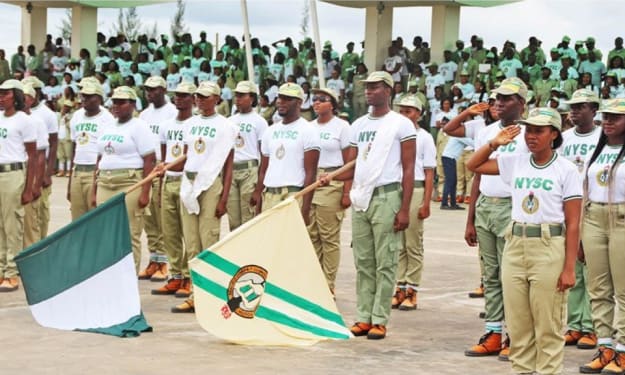The Evolution of Nigerian Politics
A Journey of Challenges and Progress

Nigeria, located in West Africa, has a rich history of political developments that have shaped its trajectory since gaining independence from British colonial rule in 1960. The Nigerian political landscape has witnessed significant challenges, including military coups, ethnic tensions, and economic struggles, while also experiencing moments of progress and democratic transitions. This essay traces the history of Nigeria's politics, highlighting key events, leaders, and milestones that have shaped the nation's political landscape.
Colonial Legacy and Independence:
Nigeria's political history is intertwined with its colonial past. British colonial rule lasted for nearly a century and had a profound impact on Nigeria's political structure. In 1914, the British amalgamated the Northern and Southern Protectorates to form the Colony and Protectorate of Nigeria. During this period, the British introduced indirect rule, granting limited autonomy to traditional rulers while maintaining overall control. This system sowed the seeds of regionalism and ethnic tensions, which would later influence Nigerian politics.
The Road to Independence:
The struggle for independence gained momentum in the 1940s and 1950s. The National Council of Nigeria and the Cameroons (NCNC) and the Action Group (AG) emerged as prominent political parties, advocating for self-governance. In 1960, Nigeria finally gained independence with Sir Abubakar Tafawa Balewa becoming the country's first Prime Minister.
First Republic and the Challenges Ahead:
The early years of independence saw Nigeria navigating the challenges of democracy. The First Republic was characterized by political instability, regional tensions, and corruption. Ethnic and religious differences often overshadowed national unity, leading to frequent coups and counter-coups.
Military Rule and the Biafra War:
In 1966, Nigeria witnessed its first military coup, resulting in the deaths of several prominent politicians, including Prime Minister Balewa. This marked the beginning of a series of military regimes that would dominate Nigerian politics for the next three decades. In 1967, the secessionist state of Biafra declared independence, leading to a bitter civil war that lasted until 1970, resulting in widespread devastation and loss of life.
Transition to Democracy and the Second Republic:
In 1979, Nigeria transitioned back to civilian rule with the inauguration of the Second Republic. Alhaji Shehu Shagari of the National Party of Nigeria (NPN) became the President. However, this period was marred by allegations of corruption and economic mismanagement, which led to discontent among the populace.
Return of Military Rule and Democratic Struggles:
In 1983, Major General Muhammadu Buhari seized power in a military coup, suspending democratic governance. The country experienced further political instability and economic challenges. It was not until 1999, following years of military rule and pro-democracy movements, that Nigeria returned to democratic governance.
Fourth Republic and Democratic Consolidation:
The Fourth Republic, inaugurated in 1999, marked a turning point for Nigerian politics. Olusegun Obasanjo, a former military leader, became the President, leading the country through two terms until 2007. The Fourth Republic witnessed improvements in governance, institutional reforms, and economic growth, although challenges such as corruption, ethnic tensions, and communal violence persisted.
Challenges and Progress in the 21st Century:
Since the turn of the century, Nigeria has faced a range of political and socio-economic challenges. These include continued ethnic and religious tensions, widespread corruption, terrorism by groups like Boko Haram, and economic inequality. Nevertheless, there have been notable achievements, such as peaceful transfers of power through elections and increased civil society participation. some challenges are listed below.
Corruption:
Corruption has long been a pervasive issue in Nigerian politics, and it remains a significant challenge in the 21st century. Rampant corruption undermines public trust, hampers economic development, and erodes the effectiveness of government institutions. However, efforts have been made to combat corruption, such as the establishment of anti-corruption agencies like the Economic and Financial Crimes Commission (EFCC) and the Independent Corrupt Practices and Other Related Offences Commission (ICPC). These agencies have achieved some successes in prosecuting corrupt officials, but more needs to be done to root out corruption from all levels of government.
Electoral Reforms:
Nigeria has made notable progress in terms of electoral reforms in the 21st century. The Independent National Electoral Commission (INEC) has implemented various measures to improve the transparency and credibility of elections. The introduction of electronic voter registration and accreditation systems, as well as the use of smart card readers during elections, has helped to reduce electoral fraud and ensure the integrity of the electoral process. However, challenges such as voter apathy, political violence, and vote-buying still persist and require further attention.
Security Challenges:
Nigeria has faced significant security challenges in the 21st century, most notably the rise of Boko Haram insurgency in the northeast. The insurgency has resulted in the displacement of millions of people, loss of lives, and a profound humanitarian crisis. The Nigerian government, in collaboration with regional and international partners, has made efforts to combat Boko Haram and other forms of insecurity. The Multinational Joint Task Force (MNJTF) has been established to coordinate efforts against Boko Haram, and there have been some successes in reclaiming territories and weakening the group. However, the security situation remains fragile, and ongoing efforts are needed to fully address the root causes of the insurgency and restore peace and stability in the affected regions.
Ethno-Religious Tensions:
Ethnic and religious tensions continue to pose challenges to Nigerian politics in the 21st century. These tensions often lead to violence, conflicts, and a sense of marginalization among different ethnic and religious groups. The government has taken steps to promote interethnic and interreligious dialogue, such as establishing the National Peace Committee and the National Inter-Religious Council. Additionally, initiatives like the Niger Delta Amnesty Program have helped to mitigate tensions in the oil-rich Niger Delta region. However, sustained efforts are needed to address the underlying causes of these tensions and foster a more inclusive and harmonious society.
Democratic Consolidation:
Despite the challenges, Nigeria has made significant progress in terms of democratic consolidation in the 21st century. Peaceful transfers of power through elections have become a regular feature, demonstrating the maturing of democratic institutions.
About the Creator
OLUBUNMI ONIMISI O. VICTOR
I AM VICTOR, A MATHEMATICIAN, A WRITER AT FEDERAL UNIVERSITY OF TECHNOLOGY AKURE(FUTA), DATA ANALYST (POWERAPPS),GRAPHICS DESIGN, AND POTENTIAL AGRICULTURAL RESEARCH, BUSINESS ORIENTED ,ASPIRE LEADERSHIP, UN VOLOUNTEERS.
Enjoyed the story? Support the Creator.
Subscribe for free to receive all their stories in your feed. You could also pledge your support or give them a one-off tip, letting them know you appreciate their work.






Comments
There are no comments for this story
Be the first to respond and start the conversation.